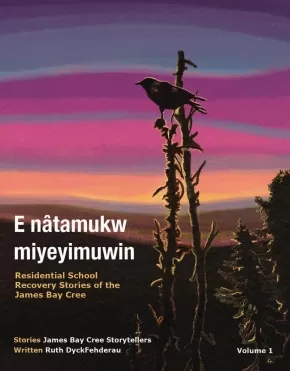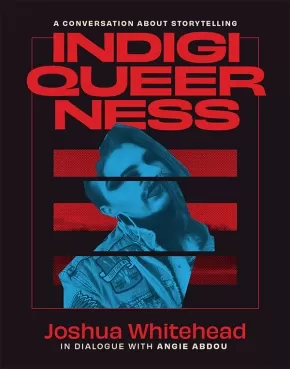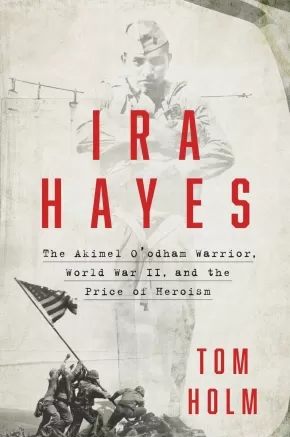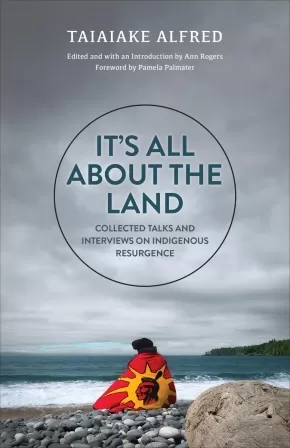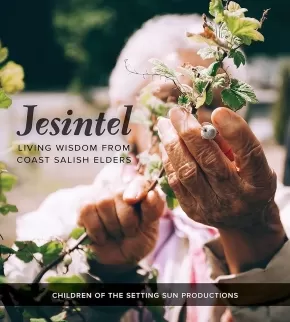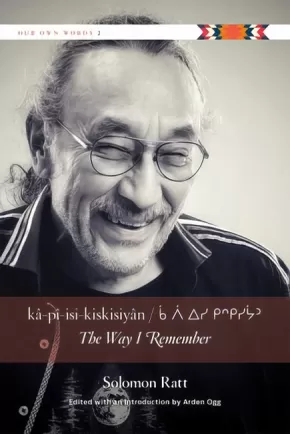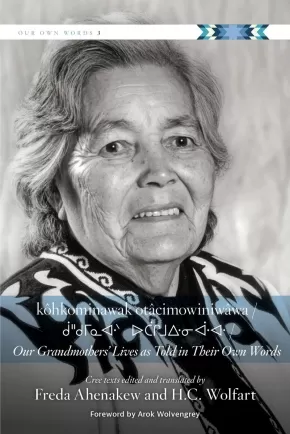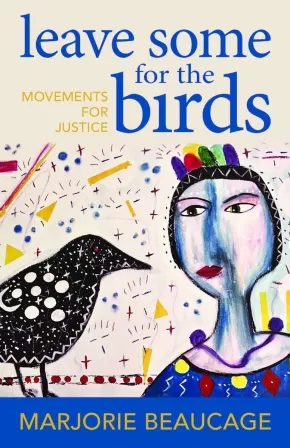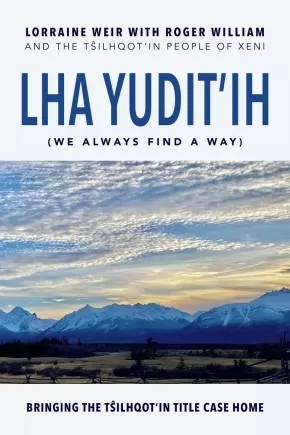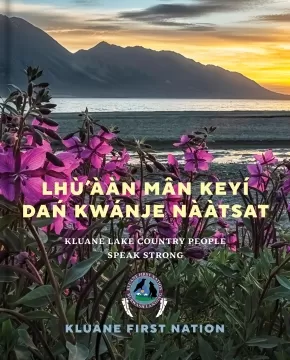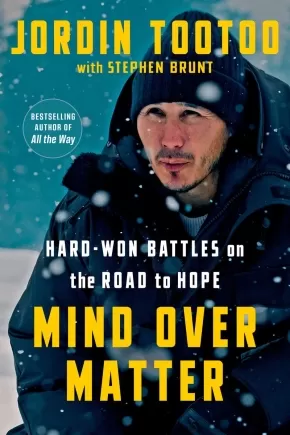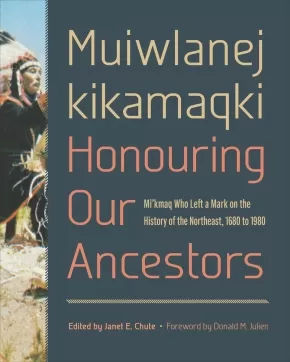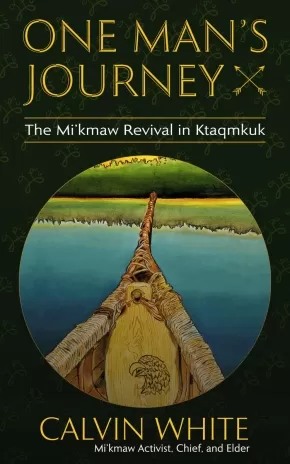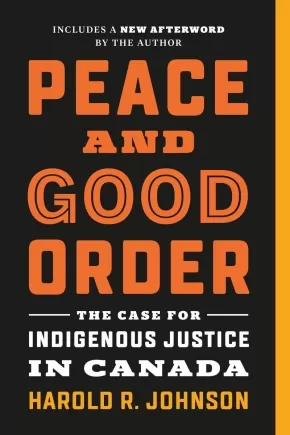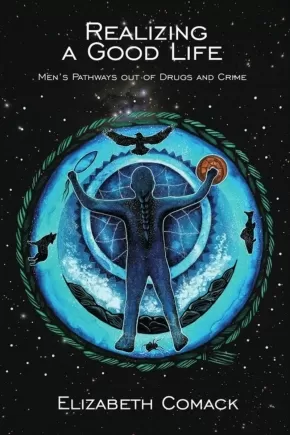Biographies
Synopsis:
In this quietly powerful and deeply human book, Ruth DyckFehderau and twenty-one James Bay Cree storytellers put a face to Canada’s Indian Residential School cultural genocide.
Through intimate personal stories of trauma, loss, recovery, and joy, they tell of experiences in the residential schools themselves, in the homes when the children were taken, and on the territory after survivors returned and worked to recover from their experiences and to live with dignity. The prose is clear and accessible, the stories remarkably individual, the detail vivid but not sensational.
Together they reveal the astonishing courage and strength of children along with the complexity and myriad methods of their oppressors. A tough, often funny, and ultimately uplifting book that’s not quite like anything else out there.
This book is published by Cree Board of Health and Social Services of James Bay and distributed by WLU Press.
Reviews
“These previously unwritten stories of lived, traumatized experiences are testament to the storytellers’ courage and strength and resilience. When the rich Cree traditional and spiritual relationship with land and with family is harmed by separation, hatred, and fear - a harm resulting in anger and loss of values, identity, and self-worth - these storytellers find ways to heal. Through their stories, you learn about culture as treatment, about the power of forgiveness and love, and about peaceful co-existence in community as essential to healing, belief, and advancing true reconciliation.” —Chief Willie Littlechild, Ermineskin Cree Nation, Former Truth and Reconciliation Commissioner, Former residential school student athlete, Order of Canada; Order of Sport, Member of Sports Halls of Fame, Canada and North America
“These Cree stories, told with utmost respect and a feeling of safety, are gifts. They are medicine.” —Joanna Campiou, Woodland/Plains Cree Knowledge Keeper
“This is a difficult but necessary book. There’s a power to truth and to the realities of the Indian Residential School system, but for those wanting to see strength and movement toward hope, this is the book for you. These stories hold that hope close to the heart. What shines through is a love of the land, a love of community, a love of the Cree language, a love of family – exactly what colonial forces like the IRS system tried to destroy but couldn’t.” —Conor Kerr, Metis/Ukrainian author, Avenue of Champions, Giller Prize longlist
Additional Information
320 pages | 7.00" x 9.00" | Paperback
Synopsis:
Everything I’ve crafted and made has been a whirlwind of community and folks and friends and lovers and family. I kind of write as an animated avatar. A lot of my material comes from listening fiercely to those around me and witnessing that which is discarded or not seen." - Joshua Whitehead
Evolving from a conversation between Joshua Whitehead and Angie Abdou, Indigiqueerness is part dialogue, part collage, and part memoir. Beginning with memories of his childhood poetry and prose and travelling through the library of his life, Whitehead contemplates the role of theory, Indigenous language, queerness, and fantastical worlds in all his artistic pursuits. This volume is imbued with Whitehead’s energy and celebrates Indigenous writers and creators who defy expectations and transcend genres.
Additional Information
48 pages | 5.50" x 7.00" | Paperback
Synopsis:
The gripping, forgotten tale of Ira Hayes—a Native American icon and World War II legend who famously helped raise the flag at Iwo Jima but spent the latter half of his life haunted by being a war hero.
IRA HAYES tells the story of Ira Hamilton Hayes from the perspective of a Native American combat veteran of the Vietnam generation. Hayes, along with five other Marines, was captured in Joe Rosenthal’s iconic photograph of raising the stars and stripes on Mount Suribachi during the battle for the Japanese Island of Iwo Jima. The photograph was the inspiration and model for the U.S. Marine Corps War Memorial in Arlington.
Between the time he helped raise that flag and his death—and beyond—he was the subject of more newspaper columns than any other Native person. He was hailed as a hero and maligned as a chronic alcoholic unable to take care of himself. IRA HAYES explores these fluctuating views of Ira Hayes. It reveals that they were primarily the product of American misconceptions about Native people, the nature of combat, and even alcoholism. Like most surviving veterans of combat, Ira did not think of himself as a heroic figure. There can be no doubt that Ira suffered from PTSD, which is a compound of survivor’s guilt, the shock of seeing death, especially of one’s friends, and the isolation brought on by feeling that no one could understand what he had been through. Ira’s life has been a subject of two motion pictures and a television drama. All these dramas sympathize with him, but ultimately fail to see his binge drinking as his way of temporarily escaping the melancholy, the rage he felt, his sense of betrayal, and the sheer boredom of peacetime.
IRA HAYES breaks apart the complexities of Ira’s short life in honor of all Native veterans who have been to war in the service of the United States. This is equally their story.
Reviews
"Written with page-turning excitement, Tom Holm, a Native scholar and veteran of Vietnam, offers an Indigenous realism through the heroic life of Ira Hayes, an Akimel O’odam marine in World War II. You will re-live the life of Ira Hayes who helped to raise the American flag at Iwo Jima after the bloodiest battle in Pacific during the war and became a legend. A gifted storyteller, Holm writes with an engaging insight making the reader feel right beside Ira Hayes in boarding school, combat, and struggling with PTSD."—Donald L. Fixico (Muscogee, Seminole, Shawnee and Sac and Fox), Regents’ and Distinguished Foundation Professor of History, Arizona State University
“WWII hero Ira Hayes would have appreciated this book. Author Tom Holm uses Ira’s courage and humility as tools to dissect the historic and current fate of his Native American people. And Ira’s challenges focus light upon the tragedy of war and the horrors of PTSD. A meaningful and beautifully-researched read.”—Judy Avila, bestselling author of Code Talker: The First and Only Memoir by One of the Original Navajo Code Talkers of WWII
“Tom Holm brilliantly and respectfully offers readers a rich and long overdue account of the life and tragic death of Ira Hayes that pierces through the stereotypes and misconceptions that plagued his during his life and long after his passing. It is a sensitive work that reminds us of the enormous emotional, psychological, and cultural difficulties Hayes had to cope with throughout his life. It is a splendid and timely contribution.” —Dr. David Wilkins, E. Claiborne Robins Distinguished Professor in Leadership Studies and citizen of the Lumbee Nation of North Carolina
“As a historian and a veteran, Tom Holm is uniquely positioned to write this important story, the first scholarly treatment of Hayes' life and times. Holm examines Hayes' struggles with fame and illness after World War II while offering insights into a post-war America hostile to Native identity and sovereignty despite the sacrifices made by Hayes and thousands of other Native Americans.”—Paul C. Rosier, Ph.D., Professor of History at Villanova University and author of Serving Their Country: American Indian Politics and Patriotism in the Twentieth Century
"An excellent piece of scholarship; the definitive work on this Native American veteran. Carefully nuanced and rich in context, Holm transcends and dispels the stereotypes of Ira Haye’s life to show the complexity of the Akimel O’odham experience, the impacts of World War II, the social use of alcohol in 1940s America, and his personal experiences from poverty, racism, and the unwanted and unending attention following the flag raising on Mount Suribachi. As Holm concludes, 'He should be remembered for who he was rather that for what the dominant society has been led to believe about him.'"—William C. Meadows, Missouri State University
"Tom Holm deservedly looms large in the history of Indigenous peoples’ military service in the wars of the twentieth century. In his new book, IRA HAYES, Holm reintroduces us to the iconic individual in ‘The Photograph’ of the flag-raising on Mount Suribachi. Holm extricates Hayes from the trope of tragedy and the racist stereotype of the ‘drunken Indian’ into which his story was confined during his lifetime and in which it remained trapped since his death. Instead, a complex Ira Hayes comes to life in the long context of his Akimel O’odham culture and community, American colonialism and racism, his military service, and his likely suffering from Post-Traumatic Stress Disorder. This tour de force is, by turns, compelling, devastating, and intensely humanizing."—R. Scott Sheffield, Professor of History at University of the Fraser Valley and co-author of Indigenous Peoples and the Second World War: The Politics, Experiences and Legacies of War in the US, Canada, Australia and New Zealand
“A strong contribution to the literature of World War II, Native American warriors, and the unseen wounds of war.”—Kirkus Reviews
Additional Information
320 pages | 6.35" x 9.25" | Hardcover
Synopsis:
Illuminating the First Nations struggles against the Canadian state, It’s All about the Land exposes how racism underpins and shapes Indigenous-settler relationships. Renowned Kahnawà:ke Mohawk activist and scholar Taiaiake Alfred explains how the Canadian government’s reconciliation agenda is a new form of colonization that is also guaranteed to fail.
Bringing together Alfred’s speeches and interviews from over the past two decades, the book shows that Indigenous peoples across the world face a stark choice: reconnect with their authentic cultures and values or continue following a slow road to annihilation. Alfred proposes a radical vision for contesting and confronting the ongoing genocide of the original peoples of this land: Indigenous Resurgence. This way of thinking, being, and practising represents an authentic politics that roots resistance in the spirit, knowledge, and laws of the ancestors.
Set against the historic arc of Indigenous-settler relations in Canada and drawing on the rich heritage of First Nations resistance movements, It’s All about the Land traces the evolution of Indigenous struggle and liberation through the dynamic processes of oratory, dialogue, action, and reflection.
Reviews
"It is Taiaiake’s call to face the uncomfortable truths of colonization and the impacts it has had on our Nations, families, and individuals that makes his work stand out. As his work is such a challenge to the current unjust status quo, it has been both embraced and rejected. This is a clear sign that he is on to something" — Pam Palmater, from the Foreword
“It’s All About the Land is a long-awaited, vital contribution and is an essential reading for anyone who wants to understand the injustices Native people live under and what we should be doing about it.” — Grand Chief Kahsennenhawe Sky-Deer, Mohawk Council of Kahnawà:ke
“Taiaiake Alfred is a thought shifter who builds fires with his words. Anyone who cares about Indigenous issues and craves to be jolted into action should read this book -- a real counter narrative to the status quo.” — Chelsey Luger, Lakota and Anishinaabe, author of The Seven Circles: Indigenous Teachings for Living Well
“It’s All About the Land takes mainstream assumptions about reconciliation as seen and processed through a colonial filter and turns them on their head. Insightful, informative, and deeply thoughtful, this book will have you thinking differently about decolonization and what reconciliation really stands for. Ultimately, it asks all of us to do and be more.” — Toula Drimonis, writer, columnist, and author of We, the Others: Allophones, Immigrants, and Belonging in Canada
“Some may be surprised, given my position and our respective philosophical world views, that I count Taiaiake as a friend, but his work forces me to scrutinize and constantly question my actions and those of my government so as not to reproduce the horrific social experiment that has devastated Indigenous peoples.” — The Honourable Marc Miller, Minister of Crown-Indigenous Relations
Educator Information
This book challenges conventional thinking about reconciliation. Renowned Kahnawà:ke Mohawk activist and scholar Taiaiake Alfred argues that reconciliation is another form of colonization and instead proposes Indigenous Resurgence as a radical vision for contesting and confronting the continuing genocide of the Original Peoples.
Contents
Foreword: The Battle to Decolonize Ourselves Inside and Out
Pamela Palmater
Introduction
Ann Rogers
Wasáse Redux
June 2005, TV Ontario
From Noble Savage to Righteous Warrior
March 6, 2010, Vancouver, BC
The Psychic Landscape of Contemporary Colonialism
November 9, 2011, Ottawa
Practical Decolonization
April 9, 2012, Kingston, ON
Warrior Scholarship
March 18, 2013, Victoria, BC
Constitutional Recognition and Colonial Doublespeak
November 27, 2013, Melbourne, Australia
On Being and Becoming Indigenous
November 28, 2013, Melbourne, Australia
Reconciliation as Recolonization
September 20, 2016, Montreal, QC
From Red Power to Resurgence
November 2, 2018, Vancouver, BC
Rebuilding the Fire: In Conversation with Pamela Palmater
July 5, 2019, Warrior Life Podcast
Ronón:kwe
January 19, 2021, The Mythic Masculine Podcast
Rooted Responsibility
March 2021, Victoria, BC
You Can’t Decolonize Colonization
September 16, 2022, The Decolonized Buffalo Podcast
Afterword: Wa'tkwanonhwerá:ton
Taiaiake Alfred
Bonus Track: The Four Intuitions
April 20, 2003, TV Ontario
A Note on the Sources
Index
Additional Information
304 pages | 5.50" x 8.50" | 11 b&w illustrations | Paperback
Synopsis:
“We need to learn and grow together, and if we are able to do this, we will create harmony,” counsels Tom Sampson, an elder of Tsartlip First Nation in British Columbia.
Dynamic and diverse, Coast Salish culture is bound together by shared values and relations that generate a resilient worldview. Jesintel—"to learn and grow together"—characterizes the spirit of this book, which brings the cultural teachings of nineteen elders to new generations.
Featuring interviews that share powerful experiences and stories, Jesintel illuminates the importance of ethical reciprocal relationships and the interconnectedness of places, land, water, and the spirit within all things. Elders offer their perspectives on language revitalization, Coast Salish family values and naming practices, salmon, sovereignty, canoe racing, and storytelling. They also share traumatic memories, including of their boarding school experiences and the epidemics that ravished their communities. Jesintel highlights the importance of maintaining relations and traditions in the face of ongoing struggles. Collaboration is at the heart of this work and informs how the editors and community came together to honor the boundless relations of Coast Salish people and their territories.
Elders Interviewed:
Tom Sampson (Tsartlip First Nation)
Virginia Cross (Muckleshoot Tribe)
Ernestine Gensaw (Lummi Nation)
Steve and Gwen Point (Stó:lō Nation)
Gene and Wendy Harry (Malahat Nation)
Claude Wilbur (Swinomish Tribe)
Richard Solomon (Lummi Nation)
Elaine Grinell (Jamestown S’Klallam Tribe)
Arvid Charlie (Cowichan Nation)
Amy George (Tsleil-Waututh Nation)
Nancy Shippentower (Nisqually Tribe)
Nolan Charles (Musqueam Indian Band)
Andy de los Angeles (Snoqualmie Tribe)
Jewell James (Lummi Nation)
Kenny Moses Sr. Family (Tulalip Tribal Nation)
Ramona Morris (Lummi Nation)
Reviews
"A beautiful sharing of thriving Coast Salish communities. Indigenous elders, cultures, and languages have so much precious wisdom to share, and Jesintel celebrates these through storytelling and photos. It is a generous gift to anyone who wants to better understand the resilience of Indigenous communities."- Michelle M. Jacob (Yakama), author of The Auntie Way: Stories Celebrating Kindness, Fierceness, and Creativity
Educator Information
Nineteen elders from Coast Salish communities in the Pacific Northwest and British Columbia offer a portrait of their perspectives on language, revitalization, and Coast Salish family values. Topics include naming practices, salmon, canoe journeys and storytelling.
Additional Information
224 pages | 9.00" x 10.00" | 144 colour illustrations | 1 map | Paperback
Synopsis:
A residential school survivor finds his way back to his language and culture through his family’s traditional stories.
When reflecting on forces that have shaped his life, Solomon Ratt says his education was interrupted by his schooling. Torn from his family at the age of six, Ratt was placed into the residential school system—a harsh, institutional world, operated in a language he could not yet understand, far from the love and comfort of home and family. In kâ-pî-isi-kiskisiyân / The Way I Remember, Ratt reflects on these memories and the life-long challenges he endured through his telling of âcimisowin—autobiographical stories—and also traditional tales.
Written over the course of several decades, Ratt describes his life before, during, and after residential school. In many ways, these stories reflect the experience of thousands of other Indigenous children across Canada, but Ratt’s stories also stand apart in a significant way: he managed to retain his mother language of Cree by returning home to his parents each summer despite the destruction wrought by colonialism.
Ratt then shifts from the âcimisowina (personal, autobiographical stories) to âcathôhkîwina, (sacred stories) the more formal and commonly recognized style of traditional Cree literature, to illustrate how, in a world uninterrupted by colonialism and its agenda of genocide, these traditional stories would have formed the winter curriculum of a Cree child’s education.
Presented in Cree Th-dialect Standard Roman Orthography, syllabics, and English, Ratt’s reminiscences of residential school escapades almost always end with a close call and a smile. Even when his memories are dark, Ratt’s particularly Cree sense of humour shines, making kâ-pî-isi-kiskisiyân /The Way I Remember an important and unique memoir that emphasizes and celebrates Solomon Ratt’s perseverance and life after residential school.
Reviews
"Sol is an international treasure the whole world should enjoy." —Buffy Sainte-Marie
"The Way I Remember is inarguably the most important book yet to be published for the preservation of the Cree language and an understanding of the importance of the oral tradition to Cree culture and education." —Jesse Archibald-Barber, First Nations University of Canada
"As he looks back over his life journey reclaiming, breathing new and old life back into our beautiful language, Solomon credits the late Reverend Edward Ahenekew for helping me "to put the pieces together." kista meena dear Solomon, ekosi aytotumawiyak. This is an important book because you have also put pieces together for us so that we can have a good journey. Kinahnaskomtin." —Maria Campbell, author of Halfbreed
"A gift to future generations...Full of humour and resilience in equal measure, these Cree/English stories offer us a glimpse into a world as it was, and future that could be" —Chelsea Vowel, author of Indigenous Writes
Educator & Series Information
Presented in Cree Th-dialect Standard Roman Orthography, syllabics, and English.
This book is part of the Our Own Words series.
Additional Information
264 pages | 6.00" x 9.00" | Paperback
Synopsis:
The 25th anniversary of a historically significant collection, presented in Cree and English.
kôhkominawak otâcimowiniwâwa / Our Grandmothers’ Lives is a collection of reminiscences and personal stories from the daily lives of seven Cree women over the past century, presented here in Cree and English. Recorded in their own language, these women share their memories of their lives and the history of their peoples, describing activities such as household chores, snaring rabbits and picking berries, going to school, marriage, bearing and raising children, and providing insights into the traditional teachings of a society in which the practical and spiritual are never far apart.
Reviews
"[T]hese ... are good stories to share ... and are absolute treasures." —Chelsea Vowel, author of Buffalo is the New Buffalo
Educator & Series Information
This book is part of the Our Own Words series.
Presented in Cree and English.
Additional Information
418 pages | 6.00" x 9.00" | Paperback
Synopsis:
From acclaimed filmmaker, artist and activist Marjorie Beaucage comes a poetic memoir that reflects on seven decades of living and seeking justice as a Two Spirit Michif woman. Poems, poetic observations and thoughtful meanderings comprise this inspirational journal-memoir-poetry collection from a woman who has dedicated her life and her talent to creating social change. Unfolding the wisdom gained from experience, leave some for the birds: movements for justice offers guidance for younger activists following the author's trailblazing footsteps.
Reviews
"I have long admired Margie's tenacious ability to persevere in spite of the obstacles placed in front of her. She continues to challenge the status quo and hangs onto what is right and just. She awakens, supports and lifts the many voices who struggle to be heard. Her voice dives deep into the depth of unknown and bewildering waters. Yet, she bubbles to the surface, takes a breath and howls with a universal plea to pay attention to the injuries imposed on the land and its people. I am honored to walk with her."--Louise B. Halfe - Sky Dancer, author of The Crooked Good.
Additional Information
211 pages | 6.00" x 9.00" | 7 Illustrations | Paperback
Synopsis:
Eight years in the making, Lha yudit’ih (We Always Find a Way) is a community oral history of Tsilhqot’in Nation v. British Columbia, the first case in Canada to result in a declaration of Aboriginal Rights and Title to a specific piece of land. Told from the perspective of the Plaintiff, Chief Roger William, joined by fifty Xeni Gwet’ins, Tŝilhqot’ins, and allies, this book encompasses ancient stories of creation, modern stories of genocide through smallpox and residential school, and stories of resistance including the Tŝilhqot’in War, direct actions against logging and mining, and the twenty-five-year battle in Canadian courts to win recognition of what Tŝilhqot’ins never gave up and have always known. “We are the land,” as Chief Roger says. After the violence of colonialism, he understands the court case as “bringing our sight back.” This book witnesses the power of that vision, its continuity with the Tŝilhqot’in world before the arrival of colonizers two centuries ago, and its potential for a future of freedom and self-determination for the Tŝilhqot’in People.
Additional Information
480 pages | 6.49" x 9.48" | 32 page colour photograph insert and black and white photos and illustrations and maps throughout | Paperback
Synopsis:
In this poignant display of the resilience of language, culture, and community in the face of the profound changes brought by settlers, Kluane First Nation Elders share stories from their lives, knowledge of their traditional territory (A si Keyi, "my grandfather's country"), and insights on the building of their self-governing First Nation.
With generosity, diligence and deep commitment to their community, Elders from Lhu'aan Man Keyi (Kluane First Nation) recorded oral histories about their lives in the southwest Yukon. They shared wisdom, stories and songs passed down from grandparents, aunties and uncles, in Dan k'e (Southern Tutchone, Kluane dialect) and English. This years-long project arose from the Elders' desire for their children and future generations to know the foundations of language, culture, skills and beliefs that will keep them proud, healthy and strong. The Elders speak of life before the Alaska Highway, when their grandparents drew on thousands of years of traditional knowledge to live on the land through seasonal rounds of hunting and gathering; the dark years after the building of the Alaska Highway, when children were taken away to residential schools and hunting grounds were removed to form the Kluane Game Preserve and National Park; and the decades since, when the community worked through the Yukon land claims process to establish today's self-governing First Nation.
Inclusivity is a key community value. The Elders' stories are accompanied by the voices of youth and citizens of all ages, along with a history of the Kluane region. The book is beautifully illustrated with Elders' photographs, historical images and art work, and photos showing breathtaking views of Kluane mountains, lakes, sites, trails, and activities in the community today. With passionate and deeply informed voices, this is a stirring portrait created by a community that has shown resilience through massive changes and remains dedicated to preserving their culture, language and lands for the generations to come.
Awards
- 2024 Indigenous History Book Prize
Educator Information
Some of the wisdom, stories, and songs are in Dan k'e (Southern Tutchone, Kluane dialect).
Additional Information
384 pages | 11.25" x 9.00"| 150 colour and b&w photos | Hardcover
Synopsis:
Following the bestselling success of the inspiring All the Way, pioneering Inuit NHLer Jordin Tootoo begins the process of healing in the wake of the suicide and violence that marks his family, only to discover the source of all that trauma in his father's secret past.
For some hockey players, retirement marks the moment when it’s all over. But Jordin Tootoo is not most hockey players.
Having inspired millions when he first broke into the league, Tootoo continued to influence people throughout his career—not only through his very public triumph over alcoholism, but also his natural charisma. And now, years after hanging up his skates, he is more committed to doing things the right way and speaking about it to others, whether it’s corporate executives or Indigenous youth.
But the news of unmarked graves on the grounds of residential schools brought back to life many of the demons that had haunted his family. In a moment of realization that left him rattled and saddened, Tootoo fit the pieces together. The years that were never spoken of. The heavy drinking. The all too predictable violence. His father was a survivor, marked by what he had survived.
As he travels back to Nunavut to try to speak with his father about what haunts him, he encounters the ghosts of the entire community. Still, as Tootoo says, we are continuously learning and rewriting our story at every step. He has learned from his mistakes and his victories. He has learned from examples of great courage and humility. He has learned from being a father and a husband. And he has learned from his own Inuk traditions, of perseverance and discipline in the face of hardship.
Weaving together life’s biggest themes with observations and experiences, Jordin shares the kind of wisdom he has had to specialize in—the hard-won kind.
Additional Information
208 pages | 6.20" x 9.37" | Hardcover
Synopsis:
Drawing upon oral and documentary evidence, this volume explores the lives of noteworthy Mi’kmaw individuals whose thoughts, actions, and aspirations impacted the history of the Northeast but whose activities were too often relegated to the shadows of history.
The book highlights Mi’kmaw leaders who played major roles in guiding the history of the region between 1680 and 1980. It sheds light on their community and emigration policies, organizational and negotiating skills, diplomatic endeavours, and stewardship of land and resources. Contributors to the volume range from seasoned scholars with years of research in the field to Mi’kmaw students whose interest in their history will prove inspirational. Offering important new insights, the book re-centres Indigenous nationhood to alter the way we understand the field itself. The book also provides a lengthy index so that information may be retrieved and used in future research.
Muiwlanej kikamaqki – Honouring Our Ancestors will engage the interest of Indigenous and non-Indigenous readers alike, engender pride in Mi’kmaw leadership legacies, and encourage Mi’kmaw youth and others to probe more deeply into the history of the Northeast.
Reviews
"This book is an invaluable and original offering. Muiwlanej kikamaqki – Honouring Our Ancestors makes a significant contribution to Mi’kmaq history by successfully bringing little-known individuals into the light and by placing them in a historical context that is uniquely informed by both written and oral narratives. For Mi’kmaq wanting to know more about their history, this book will be a wonderful source." - Natasha Simon, Nihkanatpat (Director) of the Mi’kmaq-Wolastoqey Centre, University of New Brunswick
"This book is deeply researched, both in written sources and in integrating the invaluable evidence of Indigenous knowledge. The detailed individual and family histories are uniquely effective in bringing out both changes and continuities in Mi’kmaw history and in the texture of Mi’kmaw interactions with non-Indigenous sojourners and settlers. With a remarkable and outstanding depth of scholarship, the book meticulously pursues biography as an approach that can be extended to people whose lives have too often been deemed to be insufficiently documented for conventional purposes, in order to take our historical understanding in innovative and productive directions."- John Reid, Professor of History, Saint Mary’s University
Additional Information
1004 pages | 8.00" x 10.00"| 62 b&w illustrations | Hardcover
Synopsis:
With a story spanning over seventy years of the life of respected Elder Calvin White, One Man’s Journey weaves personal history with White’s account of the Mi’kmaw movement and his role in the reclamation and restoration of pride in Mi’kmaw culture in Newfoundland.
Elder White’s journey began in the forests surrounding his home of Flat Bay, where he learned to fish, hunt, and gather from a group of respected mentors who influenced and inspired him. His story recounts how the lessons learned from these valuable moments fueled his later work to spearhead the Mi’kmaw movement throughout the island of Newfoundland, amid the fight for recognition by the provincial and federal governments. His words do not shy away from the prejudice and discrimination faced by his people, and they provide a personal account of the history, responsibilities, philosophy, and worldview of his community.
One Man’s Journey is a personal and critical look at the processes that have led to the recognition of Mi’kmaw people in Newfoundland. The book shares knowledge and history with a new generation so they can continue the movement to which Elder White has been so instrumental.
Additional Information
194 pages | 6.00" x 9.00" | Paperback
Synopsis:
An urgent, informed, intimate condemnation of the Canadian state and its failure to deliver justice to Indigenous people by national bestselling author and former Crown prosecutor Harold R. Johnson. Now with a brand new foreward.
"The night of the decision in the Gerald Stanley trial for the murder of Colten Boushie, I received a text message from a retired provincial court judge. He was feeling ashamed for his time in a system that was so badly tilted. I too feel this way about my time as both defence counsel and as a Crown prosecutor; that I didn't have the courage to stand up in the courtroom and shout 'Enough is enough.' This book is my act of taking responsibility for what I did, for my actions and inactions." -- Harold R. Johnson
In early 2018, the failures of Canada's justice system were sharply and painfully revealed in the verdicts issued in the deaths of Colten Boushie and Tina Fontaine. The outrage and confusion that followed those verdicts inspired former Crown prosecutor and bestselling author Harold R. Johnson to make the case against Canada for its failure to fulfill its duty under Treaty to effectively deliver justice to Indigenous people, worsening the situation and ensuring long-term damage to Indigenous communities.
In this direct, concise, and essential volume, Harold R. Johnson examines the justice system's failures to deliver "peace and good order" to Indigenous people. He explores the part that he understands himself to have played in that mismanagement, drawing on insights he has gained from the experience; insights into the roots and immediate effects of how the justice system has failed Indigenous people, in all the communities in which they live; and insights into the struggle for peace and good order for Indigenous people now.
Additional Information
272 pages | 5.00" x 7.51" | B&W photo spread in text | Paperback
Synopsis:
Realizing a good life is almost always defined in material terms, typified by individuals (usually men) who have considerable wealth. But classed, gendered, and racialized social supports enable the “self-made man.” Instead, this book turns to Indigenous knowledge about realizing a good life to explore how marginalized men endeavour to overcome systemic inequalities in their efforts to achieve wholeness, balance, connection, harmony, and healing.
Twenty-three men, most of whom are Indigenous, share their stories of this journey. For most, the pathway started in challenging circumstances — intergenerational trauma, disrupted families and child welfare interventions, racism and bullying, and physical and sexual abuse. Most coped with the pain through drugging and drinking or joining a street gang, setting many on a trajectory to jail. Caught in the criminal justice net, realizing a good life was even more daunting as their identities and life chances became barriers.
Some of the men, however, have made great strides to realize a good life. They tell us how they got out of “the problem,” with insights on how to maintain sobriety, navigate systemic barriers, and forge connections and circles of support. Ultimately, it comes down to social supports — and caring. As one man put it, change happened when he “had to care for somebody else” in a way he wanted to be cared for.
Educator Information
Chapter 1. Realizing a Good Life
Chapter 2. Getting into The Problem
Chapter 3. Being in The Problem
Chapter 4. Getting Out of The Problem
Chapter 5. Bringing It to a Close
The Indigenous Text label is applied because of the Indigenous contributions to this work. Its up to readers to determine if this works as an authentic text for their purposes.
Additional Information
256 pages | 6.00" x 9.00" | Paperback

